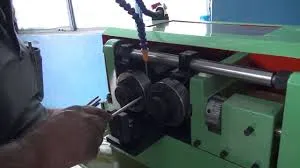
-
 Afrikaans
Afrikaans -
 Albanian
Albanian -
 Amharic
Amharic -
 Arabic
Arabic -
 Armenian
Armenian -
 Azerbaijani
Azerbaijani -
 Basque
Basque -
 Belarusian
Belarusian -
 Bengali
Bengali -
 Bosnian
Bosnian -
 Bulgarian
Bulgarian -
 Catalan
Catalan -
 Cebuano
Cebuano -
 Corsican
Corsican -
 Croatian
Croatian -
 Czech
Czech -
 Danish
Danish -
 Dutch
Dutch -
 English
English -
 Esperanto
Esperanto -
 Estonian
Estonian -
 Finnish
Finnish -
 French
French -
 Frisian
Frisian -
 Galician
Galician -
 Georgian
Georgian -
 German
German -
 Greek
Greek -
 Gujarati
Gujarati -
 Haitian Creole
Haitian Creole -
 hausa
hausa -
 hawaiian
hawaiian -
 Hebrew
Hebrew -
 Hindi
Hindi -
 Miao
Miao -
 Hungarian
Hungarian -
 Icelandic
Icelandic -
 igbo
igbo -
 Indonesian
Indonesian -
 irish
irish -
 Italian
Italian -
 Japanese
Japanese -
 Javanese
Javanese -
 Kannada
Kannada -
 kazakh
kazakh -
 Khmer
Khmer -
 Rwandese
Rwandese -
 Korean
Korean -
 Kurdish
Kurdish -
 Kyrgyz
Kyrgyz -
 Lao
Lao -
 Latin
Latin -
 Latvian
Latvian -
 Lithuanian
Lithuanian -
 Luxembourgish
Luxembourgish -
 Macedonian
Macedonian -
 Malgashi
Malgashi -
 Malay
Malay -
 Malayalam
Malayalam -
 Maltese
Maltese -
 Maori
Maori -
 Marathi
Marathi -
 Mongolian
Mongolian -
 Myanmar
Myanmar -
 Nepali
Nepali -
 Norwegian
Norwegian -
 Norwegian
Norwegian -
 Occitan
Occitan -
 Pashto
Pashto -
 Persian
Persian -
 Polish
Polish -
 Portuguese
Portuguese -
 Punjabi
Punjabi -
 Romanian
Romanian -
 Russian
Russian -
 Samoan
Samoan -
 Scottish Gaelic
Scottish Gaelic -
 Serbian
Serbian -
 Sesotho
Sesotho -
 Shona
Shona -
 Sindhi
Sindhi -
 Sinhala
Sinhala -
 Slovak
Slovak -
 Slovenian
Slovenian -
 Somali
Somali -
 Spanish
Spanish -
 Sundanese
Sundanese -
 Swahili
Swahili -
 Swedish
Swedish -
 Tagalog
Tagalog -
 Tajik
Tajik -
 Tamil
Tamil -
 Tatar
Tatar -
 Telugu
Telugu -
 Thai
Thai -
 Turkish
Turkish -
 Turkmen
Turkmen -
 Ukrainian
Ukrainian -
 Urdu
Urdu -
 Uighur
Uighur -
 Uzbek
Uzbek -
 Vietnamese
Vietnamese -
 Welsh
Welsh -
 Bantu
Bantu -
 Yiddish
Yiddish -
 Yoruba
Yoruba -
 Zulu
Zulu
Affordable Pricing for Scaffolding Pipe Thread Rolling Machines and Accessories Available Now
The Evolution and Pricing of Scaffolding Pipe Thread Rolling Machines
In the ever-evolving landscape of construction and manufacturing, scaffolding plays a critical role in ensuring both safety and efficiency. As such, the machinery that fabricates essential scaffolding components, particularly scaffolding pipe thread rolling machines, has become increasingly significant. This article delves into the essence of these machines, their functionalities, and the price landscape that affects procurement decisions.
Scaffolding pipe thread rolling machines are designed to create threads on steel pipes used in scaffolding systems. The threaded ends ensure secure connections between pipes and various scaffolding accessories, significantly enhancing structural integrity. Unlike traditional cutting methods, thread rolling is a preferred technique due to its efficiency and the high-quality threads it produces. This method compresses the material rather than removes it, leading to improved tensile strength and less waste.
As the demand for scaffolding remains robust, driven by infrastructure development and construction projects worldwide, the market for thread rolling machines has likewise expanded. Numerous manufacturers worldwide offer a range of models catering to different production capacities and technological advancements. From basic manual machines to highly automated and digitalized systems, buyers have diverse options depending on their operational requirements.
When it comes to pricing, several factors come into play. First and foremost, the level of automation significantly influences the cost. Manual machines are generally more affordable, ranging from a few thousand dollars to about $10,000. Mid-range machines with semi-automatic features typically fall between $10,000 and $30,000, offering a balance between cost and productivity. High-end, fully automated thread rolling machines can escalate in price, reaching $50,000 or more. Such machines often include advanced features like computer numerical control (CNC), which allows for precise threading operations and greater efficiency.
scaffolding pipe thread rolling machine pricelist

Additionally, material quality and machine durability also impact pricing. Machines made from high-grade materials or with enhanced protective features against wear and tear will tend to have a higher upfront cost but may prove to be more economical in the long run due to lower maintenance requirements and longer operational life.
Geographical differences can also affect the pricing structure. In countries with a robust manufacturing base, machines may be more competitively priced due to lower labor costs and higher levels of technological innovation. Conversely, importing such machinery into regions with fewer local manufacturers may incur additional shipping and customs fees, adding to the overall cost.
Furthermore, the current state of the global economy, including fluctuations in steel prices, energy costs, and supply chain challenges, can influence machine prices. In recent years, many industries have experienced volatility due to external economic factors, leading to price adjustments across the board.
In conclusion, scaffolding pipe thread rolling machines are an invaluable asset in the construction industry, facilitating the production of secure and durable scaffolding systems. The price range for these machines varies widely based on factors such as automation level, material quality, and geographical considerations. For businesses looking to invest in thread rolling technology, weighing the initial costs against potential long-term benefits is crucial. As the sector continues to grow, staying informed about market trends and technological advancements will enable manufacturers and contractors to make optimal purchasing decisions, ultimately leading to safer and more efficient construction practices.
